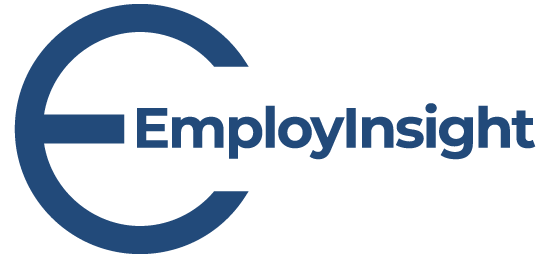Hiring the right candidates is more complex than ever. It’s no longer just about finding someone with the right skills; organisations must also mitigate human risks and ensure cultural alignment to secure long-term success. This is where psychometric testing and human risk assessments come into play, offering invaluable insights that go beyond resumes and interviews.
Here’s why these tools are critical for an effective hiring process and how neglecting them can lead to dire consequences.
1. Ensuring Competency and Role Fit
Resumes and interviews provide only a surface-level understanding of a candidate’s abilities. Psychometric testing, however, offers a deeper, more comprehensive evaluation of a candidate’s skills, personality, suitability for a role and ethics in the world of work.
For example, a software company once rushed to hire a developer based solely on their impressive resume. It wasn’t long before they discovered the candidate struggled to adapt to the team’s fast-paced, problem-solving environment. Had they used psychometric and risk assessments, they could have avoided costly project delays and found a candidate better suited for the role.

2. Identifying High-Risk Candidates
Every hire carries potential risks—financial, legal, or reputational. Psychometric and human risk assessments can identify red flags before they become liabilities.
Consider a financial institution that hired an executive without conducting proper background screening. The individual, later revealed to have a history of embezzlement, caused significant financial losses and tarnished the company’s reputation. This scenario underscores the importance of thorough hiring processes.
3. Fostering Diversity and Inclusion
Diversity is not just a moral imperative but a business advantage. Tailored psychometric tests can help identify and eliminate biases in the hiring process, promoting a more inclusive workplace.
For instance, a retail company implemented assessments to address unconscious biases in recruitment. The result? A more diverse workforce that enhanced innovation, improved customer understanding, and strengthened the company’s market presence.

4. Reducing Employee Turnover
High turnover rates can drain organisational resources. Psychometric testing helps identify candidates likely to align with the company’s vision and stay for the long haul.
Imagine a start-up repeatedly losing employees because their short-term career goals weren’t aligned with the company’s long-term objectives. By incorporating psychometric and human risk assessments, the organisation could have selected candidates more likely to grow with them.
5. Safeguarding Company Culture
A strong company culture is key to retaining talent and fostering innovation. Psychometric assessments ensure that new hires not only have the right skills but also align with the organisation’s values and work environment.
A technology firm learned this the hard way when a misaligned hire disrupted team dynamics, dampened morale, and stifled creativity. A psychometric evaluation could have prevented this misstep, preserving the company’s collaborative culture.

6. Mitigating Legal and Ethical Risks
The risks of hiring individuals with questionable ethics or poor performance histories can be catastrophic. Thorough human risk assessments protect organisations from potential lawsuits, regulatory penalties, and reputational damage.
A healthcare facility once hired a nurse without adequate background checks, only to face legal consequences after patient neglect came to light. This tragic outcome could have been avoided with proper psychometric and human risk assessment as part of the hiring process.
7. Adapting to Workforce Evolution
The modern workforce is rapidly changing, with remote work, flexible schedules, and diverse roles becoming the norm. Psychometric tools help identify candidates equipped to thrive in these evolving conditions.
For example, a manufacturing company transitioning to remote work faced challenges identifying adaptable employees. Psychometric assessments enabled them to make informed decisions, ensuring a smooth transition and sustained productivity.
Real-World Consequences of Neglecting Human Risk Assessments and Psychometric Tests
Several high-profile cases illustrate the dangers of bypassing psychometric testing and human risk assessments:
- Enron: Poor hiring practices contributed to the company’s infamous collapse due to unethical behaviours at the executive level.
- Wells Fargo: Insufficient hiring processes led to widespread unethical practices, resulting in reputational damage and hefty fines.
- Uber: Rapid hiring without cultural alignment led to scandals involving harassment and discrimination, highlighting the need for assessments focused on values and team fit.

Empower Your Hiring Process
Psychometric testing and human risk assessments are indispensable in today’s hiring landscape. They help organisations make the best data-driven decisions, safeguard their reputation and align hires with long-term goals.
To learn how EmployInsight can help transform your hiring process, contact us or visit our website. Let us help you build a workforce that’s skilled, reliable, and ready to thrive.

